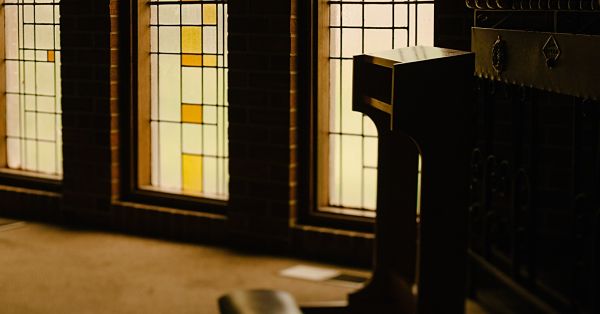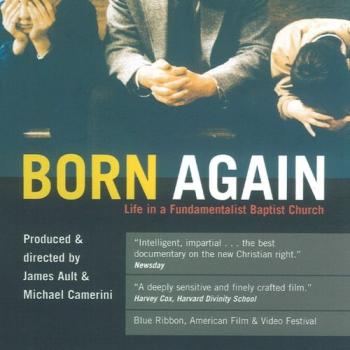How Much Change in Church Life Is Too Much?
Recently I had a fascinating conversation with the coordinator of a relatively large group of churches of the same denomination that happen to be located in one county. I don’t want to identify his title here because I’m not interested in people trying to guess who he is. I travel a lot and talk to church leaders in various parts of the country a lot, so it could be almost anyone anywhere.
This man studies trends in American church life, in the structures of church life and trends of change in them. He mused aloud to me about what he is seeing and about what it all might mean.
None of what he told me surprised me; I’ve heard rumors of it all before and seen some of it with my own eyes and heard some of it with my own ears. I’ve read about some of it before.
This church leader’s attention right now is on the question of technology and how cutting-edge technology is changing churches. But that is only one part of a larger pattern of change—away from traditional forms of congregational existence into realms of innovation and novelty that would have been unbelievable fifty years ago.
*Sidebar: The opinions expressed here are my own (or those of the guest writer); I do not speak for any other person, group or organization; nor do I imply that the opinions expressed here reflect those of any other person, group or organization unless I say so specifically. Before commenting read the entire post and the “Note to commenters” at its end.*
Here is one example he cited. (And I’ve experienced it myself when visiting some “churches.”) Many churches now have no pastor and feel no need to have a pastor—other than one they watch and listen to on a screen in a “worship space” they either own or rent. This “pastor” may or may not ever visit this congregation. This congregation may or may not feel any real connection to this far-away “pastor.” This “pastor” may or may not pastor a real congregation. (He or she may be an evangelist or author-speaker of renown within the congregation’s wider tradition.)
Typically what happens in such a situation is that the congregation is led by someone they have selected or who was appointed to them by a person at another location—someone the congregation looks to as a prophet (whether explicitly called that or not). But the local leader’s function is only to facilitate the Sunday morning experience which is usually something like this: The congregation gathers in their space and is led in singing some Christian songs. Often, however, almost nobody in the congregation actually sings; there is usually a worship band whether physically “on stage” or broadcast in via satellite feed or streaming internet service of some kind.
Then the local leader may give some announcements about events related to this local congregation—other gatherings, monetary needs to sustain the congregation’s existence (viz., pay the rent), etc. There may be Scripture reading and prayer. But the “main event” is watching and listening to a respected and possibly even revered speaker located elsewhere. This may be someone who rarely, if ever, actually interacts with the congregation. In fact, in many cases, this person hardly knows of the congregation’s existence. At the end of the “sermon,” the local leader may give an invitation for people to make some kind of decision. Then the meeting ends—possibly followed by lunch or refreshments, etc.
Now, of course, this relatively new pattern of congregational existence and life comes in many degrees and varieties. The local congregation may be part of a wider network (God forbid anyone would call it a “denomination!”) where all the congregations look to a single speaker who has some connection with all of them. In other words, the “connective tissue” between the local congregations and the main speaker may be relatively strong. The local congregation may then be a kind of franchise of the main church led by the speaker. At the other end of this spectrum, though, are local congregations that simply select a speaker to watch and listen to and make some arrangement for that with him or her (technology-wise). Or, occasionally, but possibly increasingly, the local congregation might simply choose whom to watch and listen to via podcasts and Youtube videos.
This is a trend growing exponentially—local congregations being “led” (that is, looking to) a Christian speaker (pastor, evangelist) far away who hardly knows they exist.
Of course, even beyond this trend is that of individuals simply “going to church” on the internet via podcasts. But that is not in view here; the “view” here is about congregational life and existence. Apparently these are people who feel a duty or need to meet together with other like-minded Christians but feel no need to have a pastor physically present among them.
Most often, these “congregations” feel no need for any theology or doctrine or teaching locally, among themselves; their sole focus is on the far-away speaker. The attenders (some of these churches have membership and some do not) usually read his or her books which are usually present in some way—to borrow or purchase. The local facilitator brings them, puts them on a table somewhere in the worship space, and invites the congregation to read them. Occasionally among the books are ones by other authors, but these are usually Christian authors approved by the speaker and the local facilitator.
So what questions does this new form of congregation life raise?
One that comes to my mind, as a Christian theologian, is the question of possible partial Gnosticism—at least the lack of concern about bodies and physical presences. “Virtual reality” replaces bodily and physical reality. Or the two are confused—as if the difference does not really matter. Can a pastor really “pastor” (shepherd) a congregation if he or she never is among them? Is there really total commensurability—spiritually—between seeing and hearing a local pastor preach, pray and teach bodily, physically, and seeing and hearing a speaker via satellite feed or internet connection?
I also suspect that one of the driving motives behind this newish phenomenon is a dissatisfaction with “ordinary pastor-preachers” who are not especially articulate, titillating, handsome…entertaining. In other words, an accommodation to American culture’s obsession with beauty, “stardom,” and even perfection (in appearance, demeanor, etc.). (Look at the talking heads on contemporary American television news programming. How many have any flaws and “stick around” very long?)
*Note to commenters: This blog is not a discussion board; please respond with a question or comment only to me. If you do not share my evangelical Christian perspective (very broadly defined), feel free to ask a question for clarification, but know that this is not a space for debating incommensurate perspectives/worldviews. In any case, know that there is no guarantee that your question or comment will be posted by the moderator or answered by the writer. If you hope for your question or comment to appear here and be answered or responded to, make sure it is civil, respectful, and “on topic.” Do not comment if you have not read the entire post and do not misrepresent what it says. Keep any comment (including questions) to minimal length; do not post essays, sermons or testimonies here. Do not post links to internet sites here. This is a space for expressions of the blogger’s (or guest writers’) opinions and constructive dialogue among evangelical Christians (very broadly defined).












